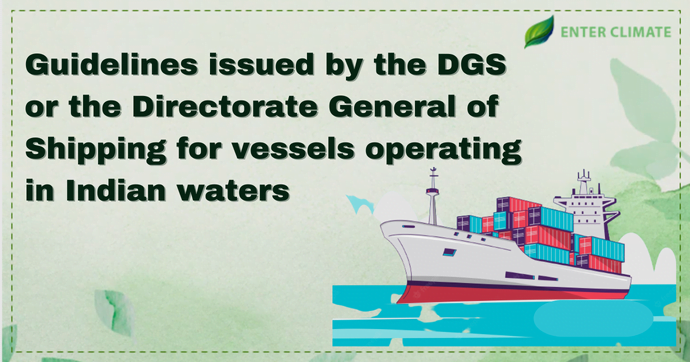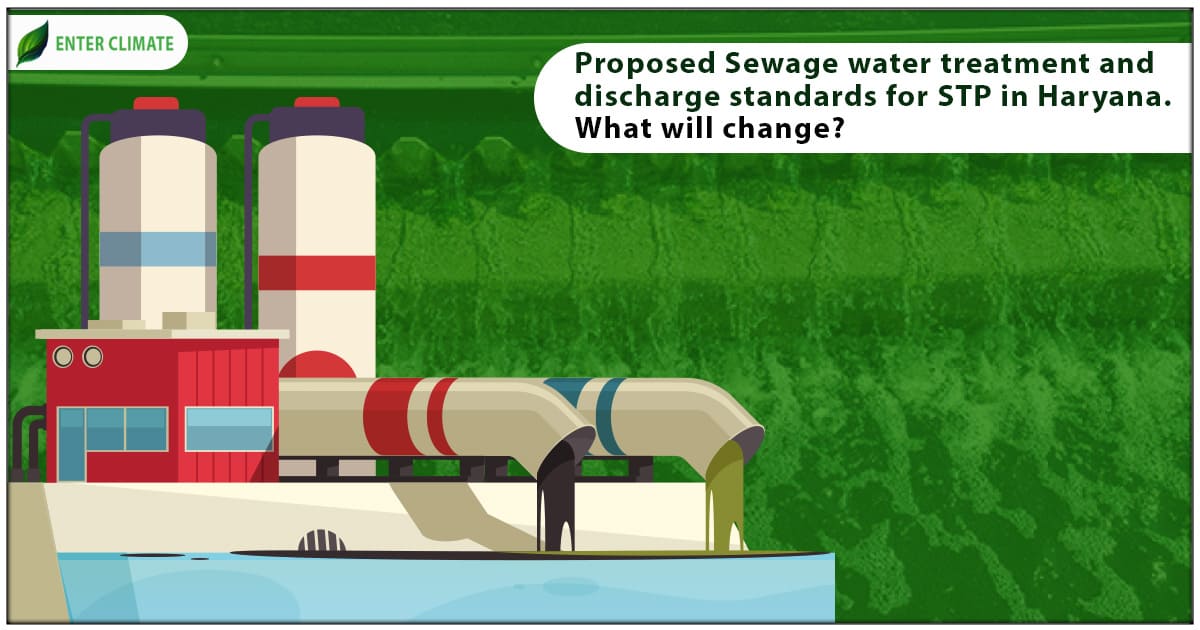Guidelines issued by the DGS or the Directorate General of Shipping for vessels operating in Indian waters
 01 Nov, 2022
01 Nov, 2022 
On 20th October 2022, the Directorate General of Shipping (DGS) published an order stipulating the guidelines for mandated documents and certification for vessels operating in Indian waters. The guidelines are ordered under the MODU Code 1989 or 2009 or the SPS code for vessels carrying more than 12 people in addition to the crew and master of the ship. The recently issued DGS guidelines for the vessels operating in Indian waters supersedes the previous MS Notice 22 of 2013, dated 5th September 2022, immediately.
Requirements mentioned in the DGS guidelines for vessels operating in Indian waters
Requirements for crew boat
- The High-Speed Crafts (HSC) having more than 12 persons other than the crew and the master, obtained for registration as a foreign or Indian vessel anticipating an operation license in Indian waters after the issue of this order, must be certified as HSC Passenger Ships under HSC Code.
- Such existing Indian vessels (apart from those falling under the high-speed craft definition)mentioned under the SPS code, according to the MSN 22 of 2013, may resume running under the old jurisdiction.
- The prevailing Indian high-speed crafts mentioned under the SPS code must also meet the structural fire protection, damage and intact stability, and additional safety requirements regarding speed and acceleration for an HSC passenger craft. Next scheduled dry docking has to draft this.
- All crew boats and firms operating such vessels must obtain certificates under the ISM Code, irrespective of tonnage. The SAR (Search and Rescue) plan, and measures must be available. Also, RO must verify these and indicate SAR support from shore within three months of the issuance of DGS guidelines for vessels operating in Indian waters.
Requirements for self-propelled vessels mentioned under the DGS guidelines for vessels operating in Indian waters
- According to the DGS guideline[1]s for vessels operating in Indian waters, self-propelled vessels carrying more than 12 persons, in addition to the crew and the master, must be certified. These vessels must be certified either as Special Purpose Ship or passenger’s vessels.
- Additionally, the self-propelled vessel must possess relevant convention certificates with all periodical/annual/intermediate endorsements. Also, they must have a class certificate mentioning particular notations. Besides, the vessels must obtain MLC certificates, insurance certificates, ISPS certificates, safety management certificates and updated class survey status.
- A ‘Special Purpose Ship’ must comply with the following requirements
- Vessels created before 13th May 2008 must comply with SPS Code [IMO Res A 534(13)].
- On the other hand, vessels created after the date mentioned above must comply with the SPS code 2008 [MSC Resolution 266(84)].
- Irrespective of its GT/type, all vessels must maintain and administer an effective safety management system (SMS), including both the operations on board all the ships and company operations, subject to ISM (International Safety Management) code. Additionally, according to the ISM code, the vessels must have a valid Statement of Compliance (SoC) or SMC and a Document of Compliance (DOC) issued by an RO.
Requirements for non-self-propelled accommodation barge
- In addition to fulfilling the requirements of MODU Code 2009 or 1989 based on the year of modification/construction, the non-self-propelled accommodation vessels (i.e., Foreign or Indian) must comply with the following. Also, the vessel must have a MODU Safety Certificate (or a similar safety certificate as a non-drilling surface unit with accommodation according to the MODU Code1989/2009).
- The non-propelled vessels operating in Indian waters must possess the following documents and certificates–
- Load Line certificate
- On-board certificates as per the provisions of the MLC convention
- Insurance certificate
- Other Financial Security regarding liability for the Removal of Wrecks (WRLC)
- The International Convention for the Prevention of Pollution from Ships (MARPOL) certificates and their supplements
- Insurance certificate and certificate of other financial security regarding the bunker pollution liability
- MLC certificate
- ISPS certificate
- Class certificate for machinery, hull and mooring and anchor arrangements.
- Safety management certificate under ISM (International Safety Management) Code
- Company DoC as per the ISM code
- GMDSS and radio communication equipment on board
- International Anti-Fouling System Certificate
- “Register of Cargo handling gear and Lifting Appliances ” and certificates of all gear on the vessel
- Maritime mobile V-Sat terminal used on board the vessel
- According to the DGS guidelines for vessels operating in Indian waters, there must be a Designated Person (DP) allotted in India having direct access to top management to implement and off emergency preparedness and risk mitigation measures on the vessel and guidance, if required by the vessel from shore in all cases.
- Availability of Minimum Safe Manning by the STCW certified ratings and officers.
- Furthermore, the vessels must have all the necessary equipment to be secured safely at their location while having special passengers or personnel onboard. Also, a mooring analysis assessment report must be available on the vessel.
- All crew accommodation regions must comply with the requirements stipulated in the amended MS (Crew accommodation) Rules 1960, MLC 2006 or crew accommodation certificate.
- In addition, an approved towing plan in foul and fair weather (unmanned or manned) must be available on board.
- All non-self-propelled barges must maintain immersion suits for all personnel on the ship. Also, there must be extra immersion suits for personnel in the machinery and bridge control room.
- Non-propelled accommodation barges with an SPS certificate must obtain a MODU code by the next scheduled dry dock.
Requirements for ‘Mobile Offshore Drilling Unit’ according to the DGS guidelines for vessels operating in Indian waters
As per the DGS guidelines for vessels operating in Indian waters, the existing ‘Mobile Offshore Drilling Units (non-propelled/propelled) under the Indian registry must adhere to MODU Code 1979, 1989, or 2009. This must be depending on the year of modification/construction. Such MODUs certified as per the 1979 MODU Code must modify and possess certification under the MODU Code 1989 within two years from the date of this order’s publication.
Besides, any propelled/non-propelled MODU partaking in a tender after the publication of this order must adhere to the requirements of MODU Code 2009 or 1989, based on the year of modification/construction.
The DGS guidelines[1] for vessels operating in Indian waters also mandates the foreign flag mobile offshore drilling facilities certified according to the 1979 MODU Code, operating in Indian waters on the date of order publication to obtain and update the certificate. However, the certificate must be obtained under the MODU Code 1989 within two years from the date of this order’s publication.
General requirements for both non-self-propelled and self-propelled vessels
- The DGS guidelines for vessels operating in Indian waters have been published in the public interest to promise life safety at sea.
- The maximum age of the life rafts utilised on the accommodation barges must not be more than a decade.
- Vessels obtained exemptions by their flag are not allowed under Code/Convention or otherwise. If such exemptions haven’t been given to Indian vessels by the Directorate, they shall not be generally considered.
- Regarding the insurance mentioned in this order, the vessel’s third-party liabilities and its crew must be covered by the Protection and Indemnity or P&I club of the owner of the ship.
- All vessels must obtain a MODU (Mobile Offshore Drilling Units) safety certificate or an SPS (Special Purpose Ship) safety certificate, as applicable (in the format given in the MODU/SPS Code), issued by one of the ROs.
- The insurance of non-marine personnel mentioned in the DGS guidelines for vessels operating in Indian waters must be given by the P&I Club. However, insurance from Indian firms may also be considered.
- A plan for proceeding to a designated safe place and emergency demobilisation and evacuation must be available.
- All Indian Flag accommodation barges must get a trading licence to work in Indian waters.
- Besides, vessels, while transpiring people to offshore accommodation barges or ships/platforms, must be instructed by the International Marine Contractors Association [IMCA] and IMO guidelines.
- Every year, all Indian accommodation barges must be available for the flag state scrutiny.
- An approved search and rescue plan for coordination with suitable Indian SAR services must be available in an emergency.
- The insurance certificates needed for non-marine personnel should not be less than Rs. 22 lakhs or, as given in the contract, whichever is more.
- All foreign flag vessels, including accommodation barges, should be available for Port State Control scrutiny as and when needed.
- The entity engaged in the vessel in Indian waters must ensure that the vessel complies with the appropriate requirement under the DGS guidelines issued for vessels operating in Indian waters.
- Unless mentioned otherwise, the requirements stipulated in this order must come into effect immediately.
- Lastly, the permissions and operations of the vessels to it must be subject to meeting the conditions above.
Conclusion
DGS guidelines for vessels operating in Indian waters came into action in the public interest to guarantee the safety of sea life. Mandating the certification of accommodation barges, offshore vessels and so on while operating in an Indian-exclusive economic zone is an unusual step.












